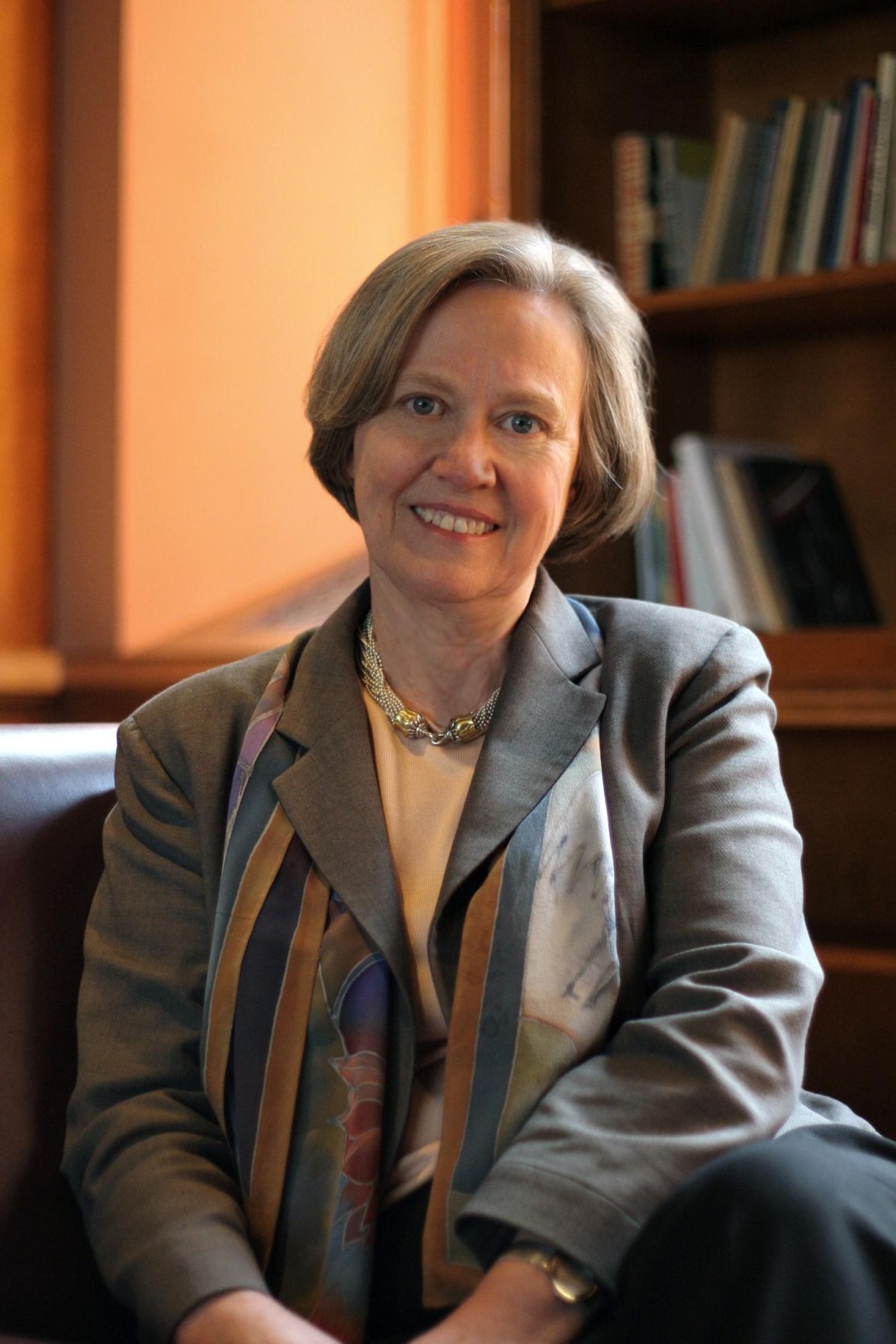By Philip Sean Curran, Staff Writer
Former Princeton University President Shirley M. Tilghman said March 10 that the most important role of the university leader is to be its “cheerleader” and it “greatest critic.”
“Because you’ve got to be able to talk in all of the constituencies that you speak to, including on campus and elsewhere, about Princeton, its values and why it matters in the world,” she said in a speech on campus. “But you’ve also got to be immensely critical of the institution, because your job is to make it better. And you can’t make it better if you’re seeing the institution through rose-(colored) glasses.”
For about an hour, Ms. Tilghman, 69, reflected on her experiences over 30 years at the university, first as a member of the faculty and later as president. She spoke in a lecture hall made up mainly of seniors, the last class that she had welcomed as freshmen in 2012.
Ms. Tilghman ran Nassau Hall from 2001 to 2013, a period of “pure joy,” in her words at being the 19th president in university history and the first woman to ever hold that job. The position came her way indirectly, as she was on the search committee to replace then-President Hal Shapiro – learning about the role of a president and later stepping down to be a candidate. She said her sitting on that committee was the “only path” for her to be named his successor.
“I can’t even conceive of a search committee choosing me had they not had that opportunity to get to know me in the five months I was on the committee,” she said.
Becoming president started her on the “steepest learning curve” of her life, such as understanding how the school invested its money.
“There were many, many things I had to learn,” she said. “I couldn’t tell you what a hedge fund was if my life depended upon it at that point.”
In her remarks, she avoided some of the more controversial moments of her tenure, like combating grade inflation and relocating the Dinky train station, or what has transpired at the school under her successor, Christopher L. Eisgruber. Rather, her talk focused on her Princeton journey, as a divorced mother raising two young children, coming to join the faculty in 1986.
At first blush, she found Princeton a far cry from the college town experience she had as a student in Canada in the 1960s. At the time, there was one bookstore and no coffee houses in Princeton.
“It just didn’t feel or look or behave like a college town,” she said. She said the university was responsible for attracting Labyrinth Books and “saved” the Garden Theatre a few years ago.
“It still is a funny relationship that strikes me between the town and the gown,” she said.
Only later, when her daughter, Rebecca, entered the university as a student in 1999, Ms. Tilghman said she learned things about Princeton, including the “immense pressures” that students live with in and out of the classroom.
“And so I think in 1999, I got my first glance and very important glance as the future president about what it was like to be a student here at Princeton,” she said. “That was extremely valuable.”
She said student residential life is the “Achilles heel” of Princeton, having done battle against the student eating clubs during her tenure. She expressed her hope that membership in a club “could be accomplished with less pain and suffering than what I know we go through as a campus.”
Later in her speech, she touched on broader issues facing higher education, including the affordability of college, at a time when schools are facing more scrutiny about the value of a degree when large numbers of graduates are awash in debt and out of work.
“But it’s shocking, to me at least, when I hear challenges to the value of a liberal arts education, in the public domain, coming from leaders who have a lot of influence,” she said. “And I think that’s terribly worrisome and we need to be pushing back against that.”

